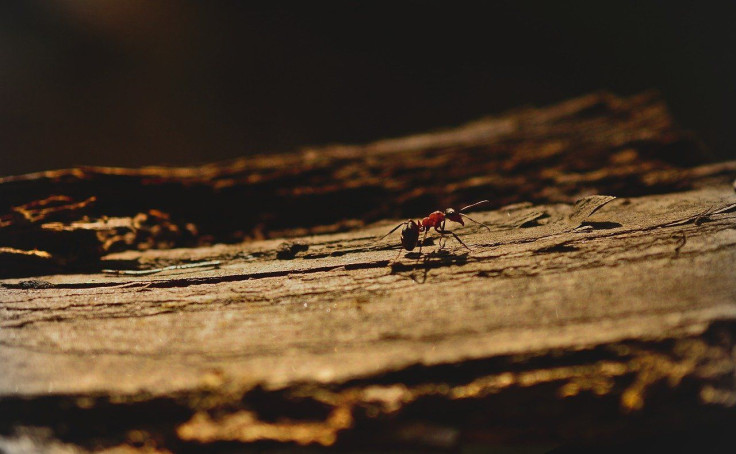Like Humans, Ants Get Stressed Out When They Are Isolated
KEY POINTS
- Researchers socially isolated ants from their colonies
- They noticed notable changes in the isolated ants' behavior
- The ants developed reactions that are similar to socially isolated mammals'
- Effects of social isolation have been well-studied in mammals but not in insects
It's not just mammals that get affected by social isolation. In a new study, researchers found that even ants get stressed out and have weaker immune response when they get isolated.
Just like some mammals, ants are social creatures that spend most of their time with their colonies. So what might happen if you isolate a social insect? Will they develop adverse responses just like social mammals do? That's what the researchers of a new study, published in Molecular Ecology, wanted to find out.
Socially Isolating Ants
For the study, the researchers focused on the Temnothorax nylanderi ant species, which live in cavities in acorns and sticks in European forests, the Johannes Gutenberg-Universitaet Mainz (JGU) explained in a news release. They took young worker ants from 14 colonies and socially isolated them for different lengths of time, from an hour to up to 28 days.
After the isolation period, the researchers observed three notable changes in the ants' behavior: They interacted with their nest-mates less, spent more time with brood and took less time in grooming themselves.
"This reduction in hygienic behavior may make the ants more susceptible to parasites, but it is also a feature typical of social deprivation in other social organisms," study co-author Professor Susanne Foitzik explained in the news release.
And when the researchers conducted a brain transcriptome analysis, they found evidence indicating that the isolation also affected the ants' immune systems.
"(M)any genes linked to immune system functioning and stress response had been downregulated," the researchers wrote. "This probably sensitizes isolated individuals to various stressors, in particular because isolated workers exhibit reduced sanitary behaviour."
Simply put, social isolation resulted in behavior changes in the ants and even affected their immune system.
Just Like Mammals
If these responses to social isolation sound familiar, that's because these have also been observed in social mammals, in whom the effects of being isolated from the rest of the group has been widely studied, the researchers said.
Ant responses to social isolation resemble those of humans: Social isolation results in changes of behavior + activity of immune and stress genes https://t.co/B2xofgyIYM #ants #SocialInsects #BehavioralEcology #themnothorax #AntColonies #BehaviouralEcology @TelAvivUni @molecology pic.twitter.com/xGZClLYh6O
— Mainz University (@uni_mainz_eng) April 7, 2021
In humans and other mammals, for instance, the effects of social isolation can lead to stress and other physiological effects.
"Isolated people become lonely, depressed, and anxious, develop addictions more easily, and suffer from a weakened immune system and impaired overall health," study lead author, Professor Inon Scharf of Tel Aviv University (TAU) in Israel, said in the JGU news release.
Such effects have been highlighted more recently, with much of the world's population having to socially isolate to curb the spread of the coronavirus. Interestingly, the researchers conducted the study from January to March 2019, before social isolation became a new norm because of the coronavirus.
The results of their study just show that insects can also get affected by social isolation and yield responses that are similar to that of other mammals.
"Our study shows that ants are as affected by isolation as social mammals are and suggests a general link between social well-being, stress tolerance, and immunocompetence in social animals," Foitzik concluded.

© Copyright IBTimes 2024. All rights reserved.






















